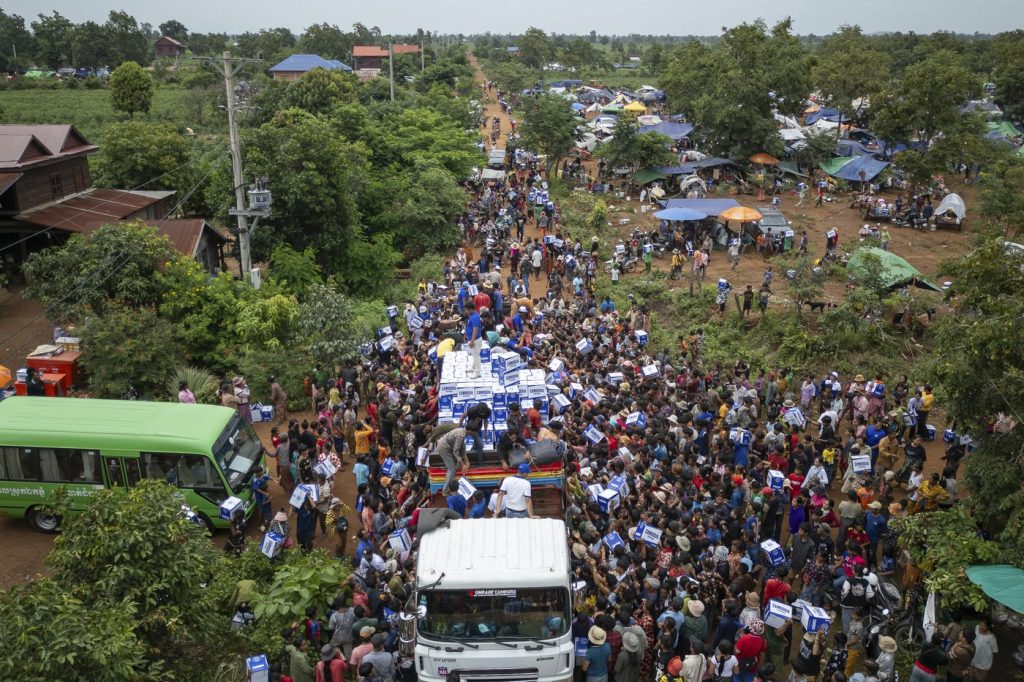SURIN, Thailand (AP) — Tensions escalated between Thailand and Cambodia as deadly border clashes continued for a third day, with the death toll reported at least 33 people and over 168,000 displaced. The fighting resumed on Thursday following a land mine explosion that injured five Thai soldiers, leading both countries to accuse each other of retaliation. Artillery fire and gunfire were reported near several border villages, expanding the conflict zone.
In the wake of the violence, both Thailand and Cambodia recalled their ambassadors, and Thailand closed its northeastern border crossings with Cambodia. Cambodian authorities confirmed an additional 12 deaths, raising the Cambodian toll to 13, while Thai sources indicated 20 fatalities, mostly among civilians.
The regional Association of Southeast Asian Nations (ASEAN) is facing growing pressure to mediate and de-escalate the situation. During an emergency meeting, members of the U.N. Security Council urged both nations to halt hostilities and seek a peaceful resolution to the ongoing conflict. The 800-kilometer (500-mile) border has been a long-standing area of dispute, but recent clashes have intensified, particularly following a deadly confrontation in May that created significant diplomatic strain.
Cambodia’s Defense Ministry condemned what it described as a Thai offensive, citing an incident where five artillery shells were fired into the Pursat province. The ministry accused Thailand of initiating aggression, while the Thai army claimed it was responding to attacks from Cambodia, asserting that their military operations aimed to protect their territory.
Amid the violence, humanitarian concerns have risen significantly. Human Rights Watch has urged the U.N. Security Council and involved nations to ensure compliance with international humanitarian laws. The ongoing conflict has led to the closure of at least 852 schools and seven hospitals in Thailand for safety reasons, with thousands of civilians fleeing their homes due to the fighting.
Both nations have employed heavy artillery and rocket attacks, with allegations surfacing regarding the use of cluster munitions. Despite initially denying the use, a Thai military spokesperson later stated that such weapons might be utilized “when necessary.” Human Rights Watch condemned such practices, especially in populated areas, reflecting concerns that neither Thailand nor Cambodia appears to prioritize civilian safety amid the conflict.
On the diplomatic front, the U.N. Security Council did not pass any resolutions during its emergency session, but Thai Foreign Minister Maris Sangiampongsa mentioned that all 15 member countries called for restraint and a peaceful resolution. Malaysian Prime Minister Anwar Ibrahim expressed that both Thailand and Cambodia were open to a ceasefire proposal. He has instructed his foreign minister to facilitate peace talks aimed at ending the fighting. Thailand expressed its willingness to engage but stressed the need for a genuine commitment to cease hostilities from Cambodia.
As the situation remains volatile, both nations continue to trade accusations, with unconfirmed reports of further casualties and displacement. The international community watches closely, emphasizing the need for a swift resolution to the escalating conflict.











